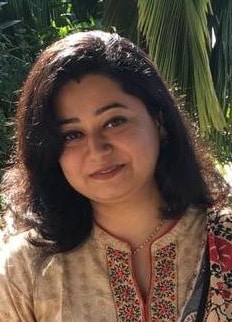Important Questions You Must Ask During a PhD interview
For Ph.D. admission, institutes and universities usually conduct interviews for selection of meritorious candidates. Once selected in an interview, the candidate will have to list their faculty preference as well. It is important to do a thorough check and match the guides interest with your interest. While at it, there may be a chance given where you may ask questions back to the panelist/faculties. Here are some examples of common questions that candidates may ask. Possible answers are also mentioned along with which you may receive from the interviewer. This will help you plan in advance to frame a counter-reply or additional questions during the interview. Remember, this is a crucial moment that will decide your research career, hence it is better to be prepared in advance for all stages.
Question 1: What are the supervision arrangements for the project?
Possible Answer: Generally, a Ph.D candidate will be expected to have a basic idea of various techniques. Initially, an induction will happen when a new student joins a lab. During this time a candidate must try and learn as much about the lab and its work as possible. The student may either be comfortable on a daily/weekly/monthly follow-up with the guide as per his availability, to keep him up-to-date. The student must follow a regular habit of reading to come up with new ideas and faster techniques.
Supervision of a project is usually given to a senior member of the lab. They become the mentor for the student. Any protocols or experimental analysis can be shared with the mentor. A step by step plan of execution has to be made. Once the student is confident with his work and is accustomed to the lab usage, the guide may allow the student to execute the project independently. The final reports are discussed with the guide for further insight into the project.
Question 2: What kind of training and skills sessions are offered as part of the Ph.D. programme?
Possible Answer:
Generally, towards the start of the project, a guide may instruct their students to regularly present their ideas/work/any random publication. This develops reading skills. A guide may insist the student to learn various techniques, this increases their skill-sets. In some research institutes, teaching may also be a part of the curriculum. This allows the student to develop their communication skills. Some labs encourage article writing so that it becomes easy for a student while formulating their thesis at the end of the tenure. These programs differ from lab to lab and hence, a candidate must be inquisitive and active and hungry to learn for the guide to show interest.
Question 3: Will I have opportunities to teach / present / publish?
Possible Answer: In some institutes, it is mandatory for an SRF to teach. Hence, this can be asked from the student and if the opportunity is given, it must be taken with delight. Teaching others can increase the subject knowledge of the candidate. Usually, towards the start of a project, a candidate may be asked to regularly present the understandings of other research papers. This increases confidence and generates a lot of ideas for the upcoming project. A PhD is incomplete without a paper presentation. It depends upon the success rates of the experiments, a student may end up having multiple publications before submission of the thesis. This greatly increases work credibility.
Question 4: How many other Ph.D. students has this supervisor seen to completion?
Possible Answer: Generally, a lab has roughly 5-10 PhD students and research associates/trainees. One of the senior students is allotted for individual mentoring of the new joiner. It is vital to check how many vacancies a guide has before joining him. Also, it is important to check how many students have qualified in the past academic year. This will give the candidate a fair idea of the guides efficiency to help. However, it has to be kept in mind that a supervisor is there to help whenever stuck and not to do the PhD on your behalf.
Question 5: Are there likely to be any changes to the funding arrangements for the project?
Possible Answer: A valid question to check since the entire 5 years a student is dependent on the stipend and the project is dependent on the funding. If either one fails, it becomes a financial burden, and may even lead to termination of the project. Before the beginning of a project it is best to jot down a flow chart and a budget, that can be worked upon. The funding has to be used efficiently. In case there is a funding change or halt, the backup plans must be thought beforehand. It is best to discuss this with the guide up front.
Question 6: Is the university or department likely to run any events or other associated projects during the period of my PhD ?
Possible Answer: A lot of institutes run parallel projects with Ph.Ds. There are conferences and paper presentations that are held to increase discussion and knowledge depth within young minds. A lot of institutes allow teaching as a part-time occupation along with Ph.D. Some make this compulsory. Such opportunities if presented must be utilized. This can be checked from the institute/lab webpage as well.
Question 7: In case the CSIR/ICMR/ICAR fund completion date approaches and my project submission is not yet complete, will I be eligible for any stipend?
Possible Answer: Certain universities/labs that obtain a good amount of research grants may have their own stipend provisions. However, if a student brings in their own funding, the institute may not extend any stipend beyond it. If the student does not complete the project before his fellowship expires he may approach the guide for an alternative solution. Either he may be allowed to earn while teaching or he may get a part of the stipend allotted. In some cases, a student may be refused both as per the lab/institute rules.
Question 8: Are there any collaborations of the supervisor’s lab with related international laboratory?
Possible Answer: This question is important pertaining specifically to the students who are interested in pursuing their post-doctorate in international labs. Many renowned scientists have collaborations with multiple national and international laboratories where a part of their area of interest is carried out. This increases the scope and quality of research which is carried out in the laboratory of the supervisor. At a time a PhD student also gets an opportunity to carry out a part of his research in an international lab which also increases his/her scope of getting selected in that lab for post-doctorate and also increases the quality and weightage of his/her PhD.
Some labs also outsource part of their experimental procedures to other labs with which they work in collaboration. Such information must be discussed with the guide for smooth execution of PhD work.
Question 9: What exactly will be my topic of research in the big repertoire work carried out in the supervisor’s lab?
Possible Answer: Many a time, multiple research is been carried in a wide area of research in different laboratories. Firstly identify your area of interest and match with that of your supervisor’s interest. Defining precise objectives is very essential before starting your PhD work. Hence by having a discussion with your supervisors, you will get a proper perspective about your path for your methodology design and other PhD work.
A lot of institutes also ask for SOPs from a student before their enrollment. This is a vital document as it shows the students interest match with the lab and the techniques that the student would like to work upon. It also highlights one’s logical interpretation and problem-solving skills. Discussion on this while enrollment may aid in the topic selection process.
Question 10: Have someone already done introductory work on your topic in the supervisor’s lab?
Possible Answer: In some cases, a project fellow may have been assigned a part of your project work. The results in that project would have opened the gateway to a lot of other research proposals. If so, this will help the student understand the subject precisely by the guidance of his/her seniors thus eventually helping him/her for designing objectives. Laboratory and literature review work which is carried out in the introductory work gives a direction about what and how much is the scope of exploration in the topic of interest.
If no, then students need to perform pilot studies and read an enormous amount of literature for an entirely new topic that he/ she wishes to carry out. This too is exciting as you will be one of the pioneers to carry out new explorations on the topic.
As important as it is to select a good candidate for research it is important for a candidate to select a good guide and project. If the work falls within their passion, no task will seem difficult. Hence, as much possible, groundwork must be done before approaching the final interviews !!
 most experienced senior team members of Biotecnika. Coming from a research background in cancer, she specializes in Cancer Genetics, Immunology & Developmental Biology. Her experience in the PhD Exam & Selection field is vast. She has a keen interest in understanding the latest developments in Biotech & Pharma Industry and is very passionate about educating the same to her students. She is one of the favorites among her students.
most experienced senior team members of Biotecnika. Coming from a research background in cancer, she specializes in Cancer Genetics, Immunology & Developmental Biology. Her experience in the PhD Exam & Selection field is vast. She has a keen interest in understanding the latest developments in Biotech & Pharma Industry and is very passionate about educating the same to her students. She is one of the favorites among her students.































